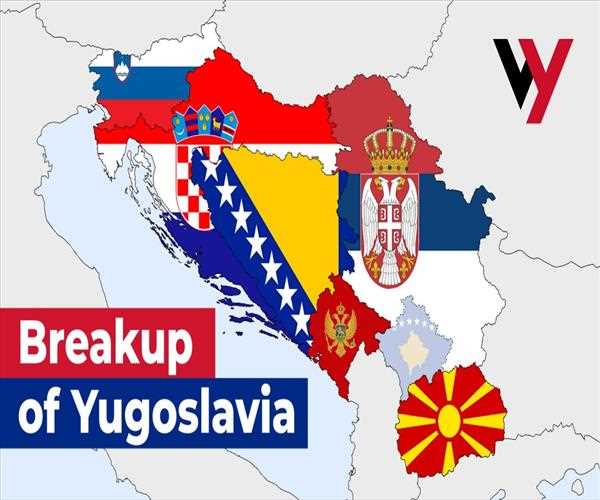The former Yugoslavia was a country located in the Balkans region of Europe, comprising several republics, including Serbia, Montenegro, Croatia, Slovenia, Bosnia and Herzegovina, North Macedonia, and Kosovo. It existed from 1945 to 1992 and is now composed of several independent countries.
The dissolution of Yugoslavia in 1992 was a long, complex process that had many causes. The breakup of the country was largely driven by the rise of nationalism among its constituent republics and the growth of ethnic tensions stemming from the legacy of the Tito era. During this period, the Serbs, who had been the dominant force in Yugoslavia, were increasingly marginalized and oppressed. This led to a series of wars, culminating in the Yugoslav Wars of the early 1990s.
Ultimately, the breakup of Yugoslavia resulted in the creation of seven new countries, with Serbia, Montenegro, Croatia, Slovenia, Bosnia and Herzegovina, North Macedonia, and Kosovo becoming independent countries in their own right. When these countries declared independence, they were quickly recognized by the international community.

But despite gaining recognition as independent countries, none of the former Yugoslavia countries are part of the European Union. This is largely because of the ongoing political issues and economic instability in the region, as well as the fact that a number of the former republics have yet to meet the necessary criteria for EU membership.
The European Union has outlined a series of requirements that must be met before a country can join the bloc. These include complying with the EU’s laws, establishing a functioning market economy, and meeting strict human rights standards. Additionally, states must have a functioning democracy and be able to demonstrate a commitment to regional stability.
Unfortunately, the former Yugoslavia countries have yet to meet many of these criteria. The region is still plagued by political instability, and many of the former republics are in the midst of economic transition, with some facing major challenges such as high unemployment and poverty.
Furthermore, the EU has expressed concerns over the state of democracy in the region, with several of the former Yugoslavia countries facing accusations of corruption and human rights abuses. These issues are further complicated by the fact that some of the former republics have been involved in armed conflicts in recent years, making it difficult for them to establish a stable democracy.
Given these issues, it is unlikely that any of the former Yugoslavia countries will join the European Union in the near future. The EU’s strict criteria for membership and the ongoing political and economic issues in the region mean that it will be some time before the former republics are able to meet the necessary standards and join the bloc.